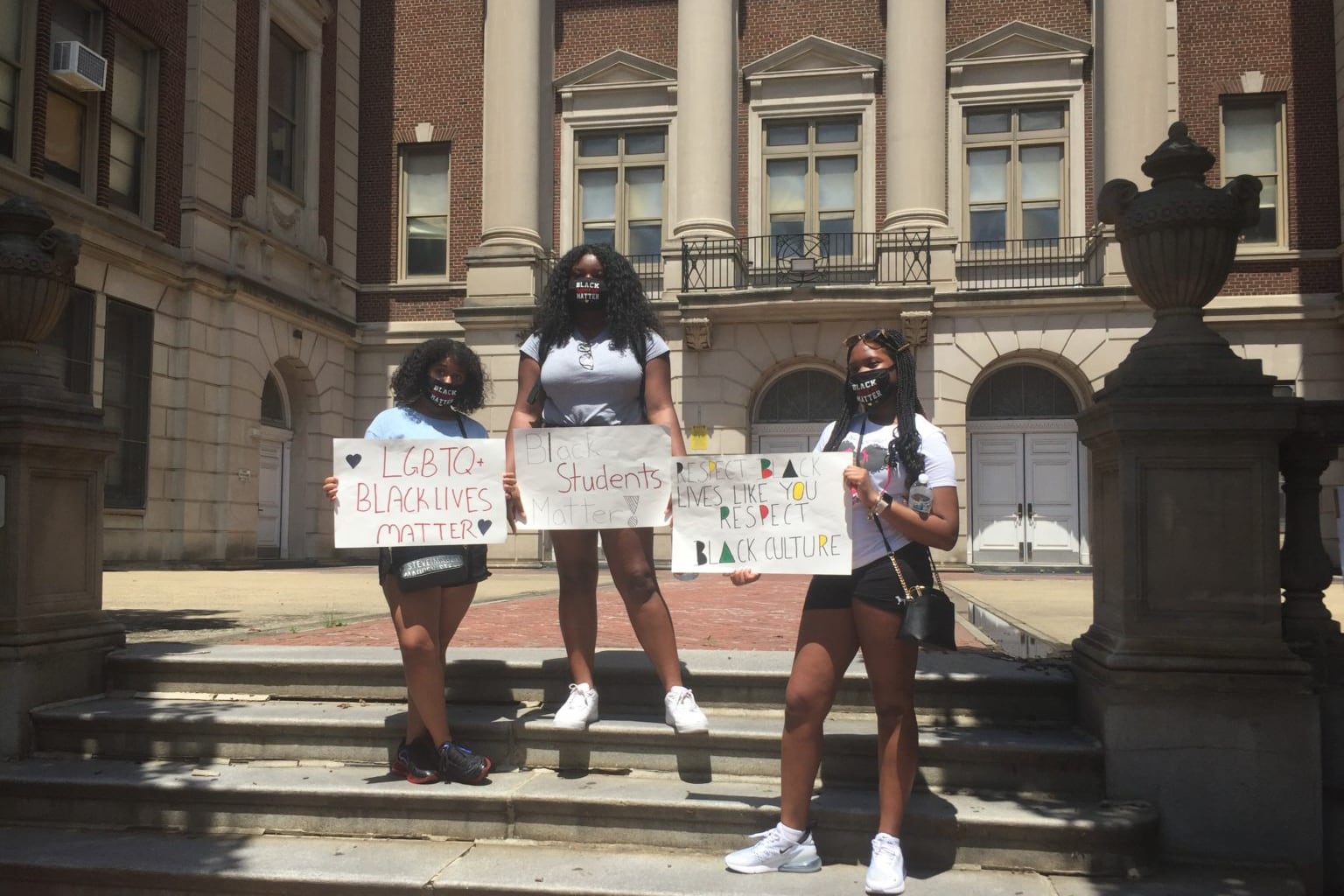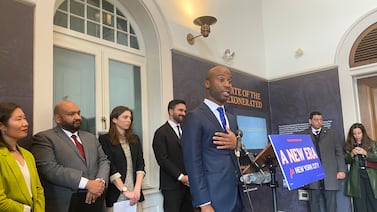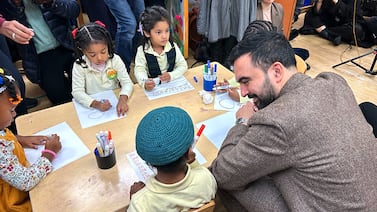Alumni of the Julia R. Masterman Demonstration School renewed their demands on Thursday for changes to the admissions policy for the city’s most highly selective school, which enrolls far fewer Black and Latino students than the district as a whole.
“When I was a student at Masterman there were students from every neighborhood,” Sarah Lee, a 1997 Masterman graduate told members of the school board. “Today the student body is not as diverse and does not represent the city of Philadelphia. Most students that attend are coming from a few select elementary schools.”
Lee noted that when she attended Masterman, nearly half of the student body was Black, compared to around 15% today.
Sarah Young, also a 1997 graduate, decried what she said was a lack of transparency in the admissions process.
“There’s no clear communication in the requirements for admissions and the choices seem to be made by one individual,” she said. “We need to ensure equity and access to education and specifically we need to support Black students in Philadelphia being accepted into magnet schools.”
Their testimony before the Philadelphia board of education committee meeting came hours after Superintendent William Hite addressed possible changes in the district’s selective admissions policies in a call with reporters. Citing equity concerns, he suggested that a lottery for all “qualified” applicants would be used to replace “school-based” decisions made late in the process.
“We’re first looking at children who meet the criteria, and then once you meet the criteria we’re looking at it based on a lottery, not some form of school-based selection,” he said.
By the afternoon, the district issued a statement explaining that while the admissions process for this year has been “revised,” there will be no lottery — at least not for the current crop of eighth graders applying now for high school.
“While a lottery may be manageable in future years, during the current school selection process, we are not conducting a lottery for admission to any of our special admission schools,” the statement said.
The whirlwind day marked by Hite’s remarks, followed by the clarification and the alumni testimony, reflect the delicacy of this issue. Black and Latino students are significantly underrepresented at Masterman and Central High School, the city’s two most selective schools, which have rigid test score requirements. The cutoff to be considered are scores at the 88th percentile or above.
During the summer, amid the Black Lives Matter protests following the police killing of George Floyd, students and alumni at Central and Masterman called on the district to overhaul admissions policies to increase the numbers of Black and Latino students. They also demanded that the schools adopt policies to combat what they described as pervasive racist practices and attitudes in the schools.
The principals of the schools promised to act, and Hite told Chalkbeat then that he thought the coronavirus and America’s racial reckoning had finally created the right atmosphere for the district to take a hard look at selective admissions.
“More individuals are pointing to this as one of the systemic inequities we faced in Philadelphia for many years,” he said at the time.
Before the district walked back his statement, Hite said that any lottery would only occur after students met other qualifications set by the schools and their principals. And district data show that the test score cutoffs are the biggest barrier to admissions at the most selective schools, especially Masterman and Central.
There is no indication, however, that the district intends to eliminate or change the test score threshold to qualify for either Central and Masterman.
Instead, the revised plan for this year will use older test scores, which means sixth grade results for Masterman High School and second grade ones for Masterman middle school. Traditionally the schools use seventh and third grade tests, but because of COVID-19 school shutdowns, there were no tests administered last school year. In addition, the district will consider multiple years of grades and attendance.
Extensive research the district conducted on the selective admissions process found that the major reason for the underrepresentation of Black and Latinx students at the top schools had to do primarily with test scores. The reports urged that to correct the problem, the district should do more recruitment, reaching out to students who are just below the cutoffs and “making that segment of the process more equitable.”
According to district data, Black students make up just 14% of the students who score in the 90th percentile or above, despite being nearly half of the district’s student population. Hispanics, who make up about 21% of the district’s enrollment, account for 6.6% of the highest scorers.
Data show that historically, just about all the Black and Hispanic students who meet the test score threshold for Central and Masterman are admitted. So it is unclear how a lottery would improve diversity at those schools so long as the test score cutoff remains.
In the 2019-2020 school year, 20% of the students at Central were Black and 7% were Latino. At Masterman, 15% of students were Black and 7% were Latino. And Black student enrollment has been steadily falling since 2011-12, when about a third of Central’s students and 30% of Masterman’s were Black.
At Thursday’s press briefing, Hite said that the planned selective admissions policy changes “are providing more young people who had the ability to apply with the opportunity to apply.
The afternoon statement reiterated the concern over equity, emphasizing plans to step up recruitment in schools and areas of the city that rarely send students to Masterman.
“Our goal, throughout the admissions process, is to ensure that students and staff at our special admit schools reflect the diversity of the city’s population,” it said. “To this end, despite COVID-19, more special admission schools are increasing their student recruitment capacity with the help of equity coordinators and expanding their selection panels.”
According to the district’s statement, Masterman Middle school starting this year “will conduct interviews to provide potential candidates the opportunity to share their unique experiences.”
Past efforts to alter the test-heavy system became a contentious political issue. White parents said that access to these schools was one of the factors that kept them in the city. Asian students, who are also overrepresented at Central and Masterman, have expressed concern about being denied spots they have earned.
The alumni who spoke at the board meeting said that Masterman’s problems did not end with admissions, but said a culture of racism was present in the school. Some of that was outlined last summer on the Black at Masterman Instagram page.
The board will vote Oct. 22 on a resolution to to hire an equity coordinator for Masterman. District chief of staff Alicia Prince said that was part of the district’s year-long effort of “building out our equity coalition” and promoting an “anti-racist environment.”
The district has a wide array of high school choices divided into three tiers: neighborhood schools, citywide admissions, and selective admissions. All Philadelphia public school students are expected to apply to high school, even if they plan to attend their neighborhood school. By November 6, they must list five high schools they want to attend, even though this year high school fairs were virtual, school visits were canceled, and students had limited access to their guidance counselor, due to COVID-19.
The choices encompass what the district calls “hundreds” of opportunities for specialized learning, including about 40 Career and Technical Education options as well as themed schools for science, history, and the arts, as well as a focus on project-based learning.






